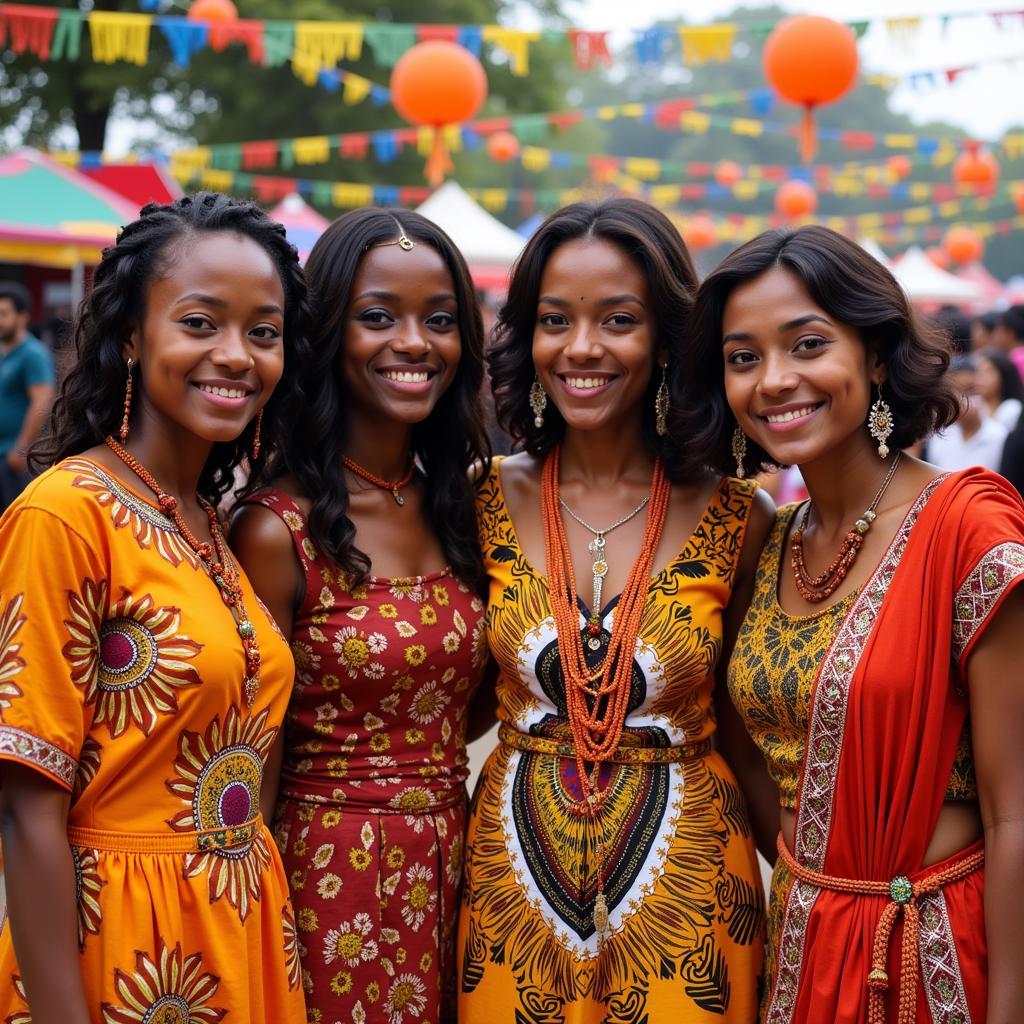Exploring African Countries: Time, Culture, and Experiences
African countries, time zones, and cultural experiences are diverse and fascinating. This vast continent is home to a multitude of nations, each with its unique history, traditions, and ways of life. From the bustling markets of Marrakech to the serene landscapes of the Serengeti, Africa offers a tapestry of experiences that captivate travelers and scholars alike. Understanding the nuances of time, culture, and tradition across these diverse nations is key to appreciating the rich tapestry of African life.
Navigating Time Zones Across African Countries
Africa spans several time zones, reflecting its geographical breadth. From UTC-1 in Cape Verde to UTC+4 in Mauritius and Seychelles, understanding the time differences is crucial for travelers and those conducting business across the continent. Many countries within Africa operate on a single time zone, while others, like the Democratic Republic of Congo, span multiple zones. This can sometimes create confusion, especially when coordinating events or communications.
Understanding Time and Punctuality in Different Cultures
While clock time is a universal concept, its perception and application vary greatly across African cultures. In some societies, a more flexible approach to time prevails, emphasizing relationships and the flow of events rather than strict adherence to schedules. This concept, often referred to as “African time,” reflects a different cultural understanding of punctuality. However, it’s essential to avoid generalizations, as punctuality is also highly valued in many African business and professional settings.
Cultural Experiences: A Journey Through African Traditions
African culture is a vibrant mosaic of traditions, languages, and artistic expressions. Music and dance play integral roles in many societies, serving as forms of storytelling, celebration, and spiritual connection. From the rhythmic drumming of West Africa to the intricate dances of East Africa, these art forms offer glimpses into the soul of the continent. Exploring these traditions provides a deeper understanding of the values, beliefs, and histories of diverse African communities.
The Art of Storytelling in African Cultures
Oral traditions hold a significant place in many African cultures. Stories, proverbs, and legends are passed down through generations, preserving history, teaching moral lessons, and entertaining audiences. These narratives often incorporate elements of mythology, folklore, and ancestral wisdom, providing valuable insights into the worldview and cultural values of different communities.
From Cuisine to Crafts: Exploring the Diversity of African Life
The culinary landscape of Africa is as diverse as its cultures. From the spicy tagines of Morocco to the flavorful stews of West Africa, each region boasts unique dishes and culinary traditions. Staple foods like maize, millet, and sorghum are often incorporated into meals, alongside a variety of vegetables, fruits, and meats. Exploring African cuisine is a delightful journey for the palate, offering a taste of the continent’s rich agricultural and cultural heritage.
The Significance of Craftsmanship in African Art
Craftsmanship holds a special place in many African societies. From intricately woven textiles to skillfully carved wooden masks, these art forms reflect the creativity and artistic talent of local artisans. These crafts are not merely decorative objects; they often hold symbolic meaning, representing cultural values, spiritual beliefs, or historical events.
In conclusion, exploring African countries, time, and cultural experiences is a journey of discovery. From understanding the nuances of time perception to appreciating the rich tapestry of traditions, each aspect offers valuable insights into the diverse and fascinating world of African Life. By embracing these differences and engaging with the continent’s unique cultures, we can gain a deeper appreciation for the beauty and complexity of African Life.
Frequently Asked Questions (FAQ)
-
What is the most common language spoken in Africa? While there are over 2,000 languages spoken across Africa, some of the most widely spoken include Arabic, Swahili, French, English, and Portuguese.
-
What are some popular tourist destinations in Africa? Popular destinations include Marrakech, the Serengeti, Cape Town, the Victoria Falls, and Mount Kilimanjaro.
-
What is the climate like in Africa? Africa experiences a wide range of climates, from deserts to tropical rainforests. The climate varies greatly depending on the region.
-
What are some important cultural considerations when visiting Africa? It is important to be respectful of local customs and traditions. Dress modestly, ask permission before taking photographs, and learn a few basic phrases in the local language.
-
What is the currency used in different African countries? Different countries use different currencies. It’s important to research the specific currency used in the country you plan to visit.
If you need any assistance or have further questions, please don’t hesitate to contact us. Call us at +255768904061, email us at kaka.mag@gmail.com, or visit us at Mbarali DC Mawindi, Kangaga, Tanzania. We have a 24/7 customer service team ready to assist you.

